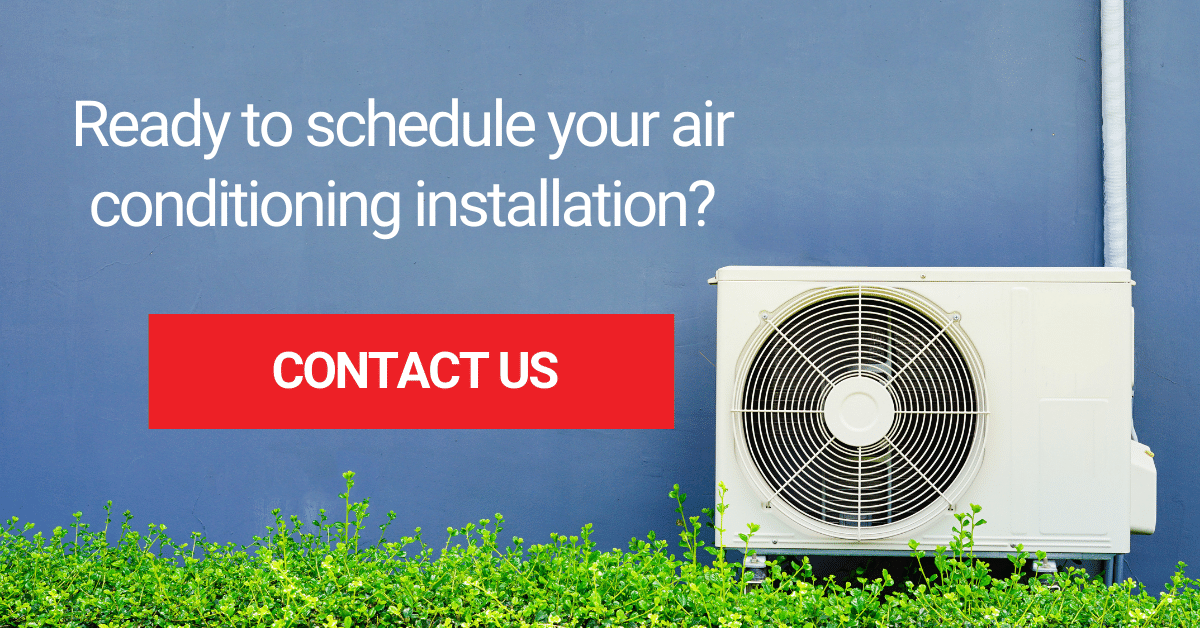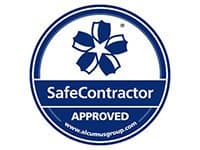You have probably noticed that there’s a distinctive trend in weather over the last few years. We get some really heavy rain but also some spells of relatively high temperature, often with a side order of high humidity. With most UK homes and many businesses functioning without air conditioning, these can be trying times.
But what about adding air conditioning? What are the costs to install, what types of air conditioning are there and could it be worthwhile investing in for your home? Let’s take a look at how much to install air conditioning in the UK and the main topics around it.
Have you got any questions about the cost of air conditioning installation for your home or business? Call us on 01179 523355 or fill in our contact form with any queries you may have and we will get back to you.
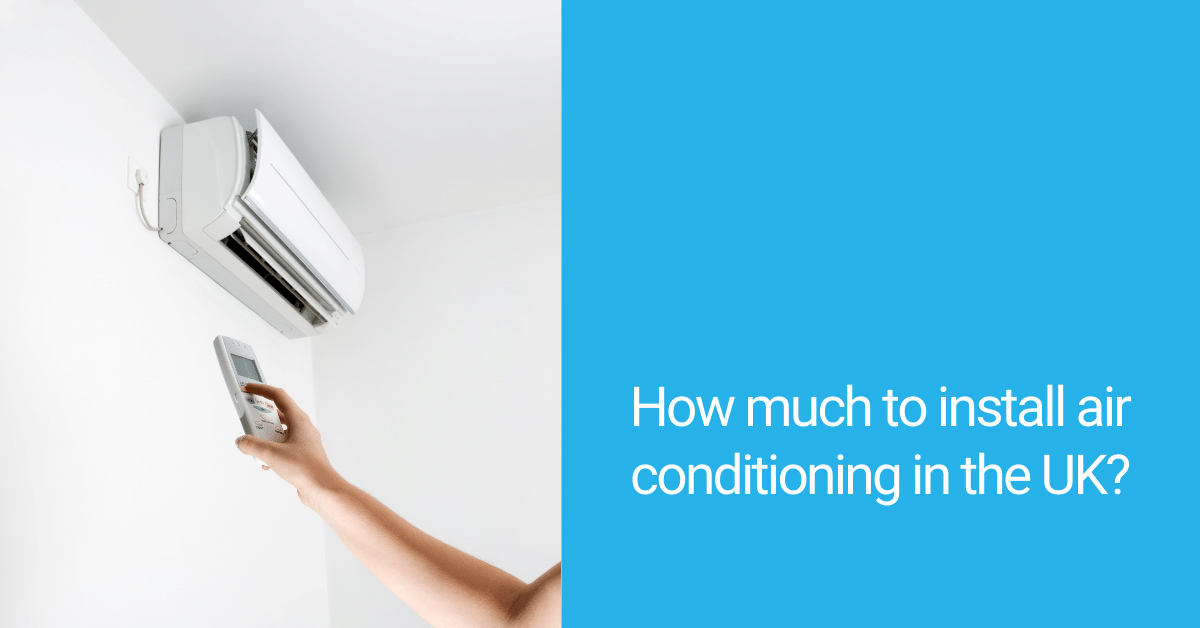
How much does it cost to install air conditioning in 2021?
Getting the answer to the question of how much does it cost to install air condition in 2021 in homes or businesses is a tricky one. That’s because there are a few different factors that come into how much it costs.
Four main factors affect the cost to install:
- The size of the house or business
- The type of air conditioner system you want
- The quality of the unit you want
- What features it has such as a remote control, a timer, app control or even a sleep mode
The cost on average for a small home office can run from £1250 to £3500 while a double bedroom could cost from £1500 to £4000 to have the right air-con installed. Adding a split air conditioner system to a conservatory can cost around £2000 while a whole six-room multi-split unit could cost around £7500.
If you want a ducted air conditioning system, the cost for a home office would be around £3000 and about the same to add to a double bedroom.
Is air conditioning expensive to run in the UK?
While the cost of installing the system is one factor to consider, the other thing you’ll want to know about is the cost of running the units. Having air conditioning installed then discovering it is too expensive to run won’t help the problem!
Again, there are lots of factors that come into the running costs equation but we can give a few basic ideas.
Air conditioning is measured in British Thermal Units or BTUs. each system will have a BTU rating and anything under 10,000 usually isn’t going to be ideal for homes or businesses unless you want to cool a single small room.
Larger rooms need around 12,000 BTUs while a larger office would need around 16,000 BTUs.
The BTU also helps with the idea of running costs. A 10,000 BTU system will cost around 10p per hour to run while a 12,000 BTU system will have an average cost of around 12p an hour to run. You can see the pattern.
What to consider when installing air conditioning?
The type of air conditioning installed will play a part in the costs both to install and to run so it is a good idea to understand a few of the basics.
You may also want to look at issues such as energy efficiency when considering systems as some of the more ‘green’ options can help save money and be more environmentally friendly as well.
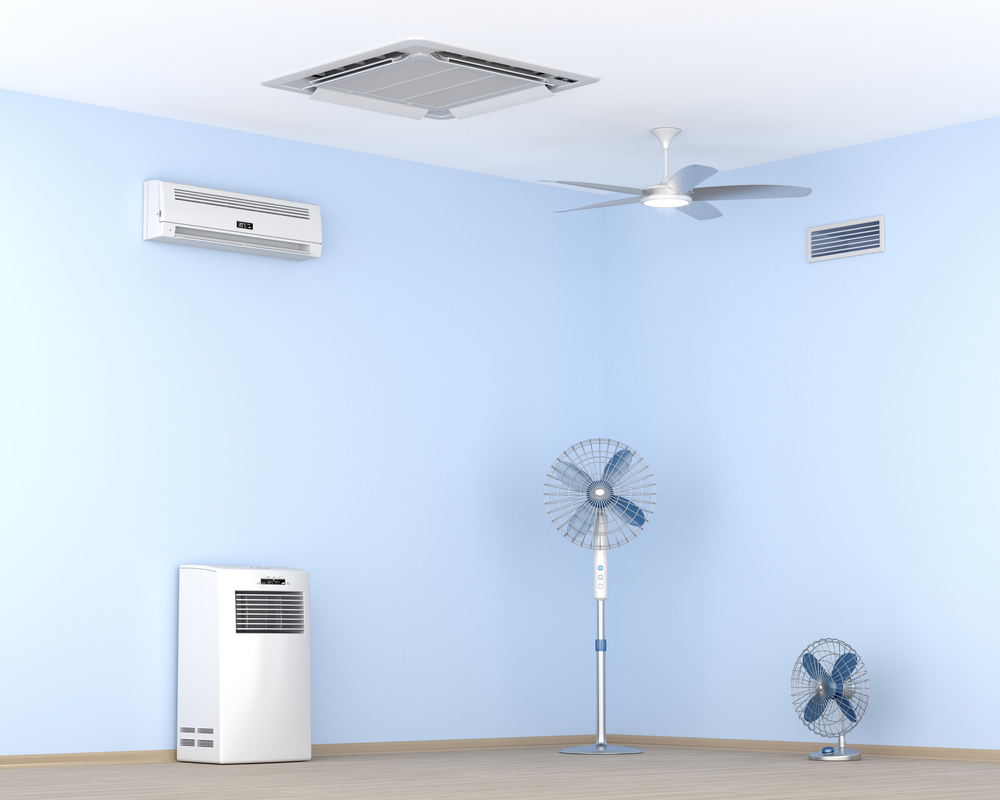
Types of air conditioning
Perhaps the simplest type of air con is the portable air conditioner. These types of units can be moved around where they are needed and are usually around the size of a kitchen bin. Portable air conditioning units need a power outlet to work and a duct out of a window to clear the warm air. You may also need a container to capture condensation produced by the unit.
Wall mounted systems involve a unit that sits on the wall to give out the cool air and another unit that is usually outside the building to create the cool air. These can be simple systems or more complex if a number of rooms need to be fed from the one main cooling unit.
Ceiling mounted unit systems work similarly but the outlet for the cool air is on the ceiling rather than on a wall. These may not work as well in homes, depending on construction as some kind of false ceiling is needed to allow pipework to be hidden behind it.
Evaporation coolers are the news option and use an old idea of blowing air through a curtain of water to cool the room – just with modern technology to do it. They need a supply of dry air and somewhere to send the moist, warm air afterwards. In the UK, humidity levels can mean these systems don’t always work the best.
Domestic Air Conditioning vs. Commercial Air Conditioning
Almost any of the systems can work as commercial or domestic air conditioners but some systems are favoured in some situations. For example, a portable air conditioning unit isn’t ideal for a larger office space. But a large ceiling mounted system might be too much for a home. An air conditioning expert can guide you on the right system for your property.
Size of the unit
The size of the unit plays a part in whether the system is right for the home or business because of the space available. Also, the size of the room will impact what BTUs is needed to cool it. So a room measuring 15 x 10 x 8 feet will need a unit offering around 6,000 BTUs to cool it.
Energy efficiency
The final thing to consider when looking at installing air conditioners is energy efficiency. With growing concerns over the use of fossil fuels and the impact homes and businesses have on the environment, this is something to study. Each unit will have an Energy Efficient Ratio or EER. This uses the BTU and power output in watts to assign a figure. The higher the EER rating, the more efficient the system is.
Claimed energy class is another way to measure this which rates from A to G with A being the best. But these aren’t always a completely accurate measure as the conditions of use can play a part.
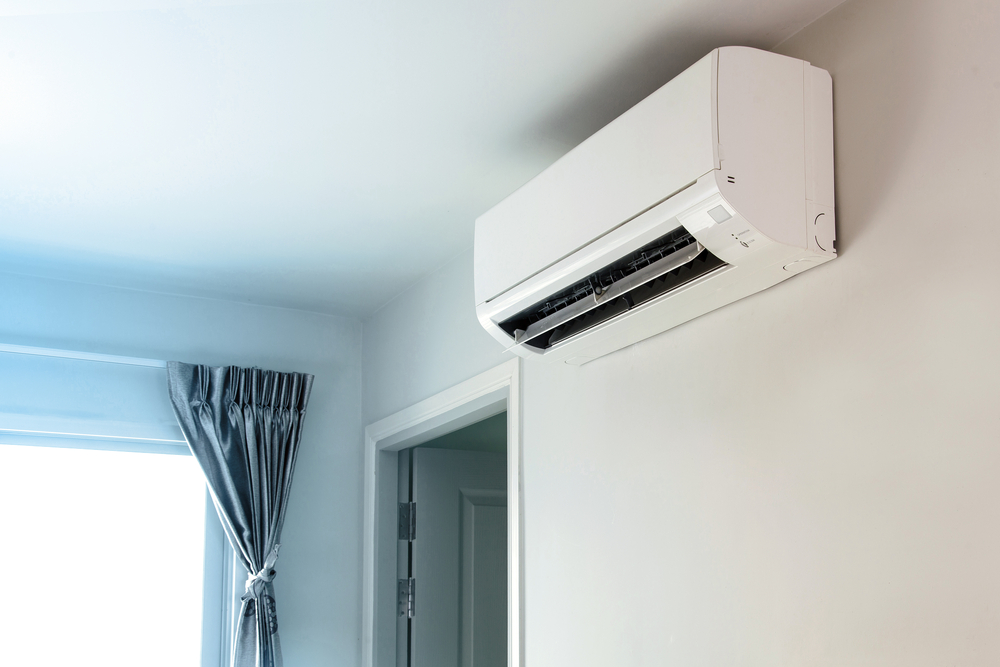
Does air conditioning add value to a home?
Adding air con to your home can increase the value if it is an energy efficient system that isn’t too obtrusive. Another option is to consider something like a heat pump that can act as both heating and cooling for the different times of the year.
Being able to show a good EER will be important for the overall energy efficiency rating of your home, which is now shown to potential buyers to help them make a decision.
Who would install an air conditioning unit?
Air conditioning systems are definitely not a DIY project and need a professional engineers to handle the installation. You would also best speak to an expert before you buy a unit to make sure you are getting the best fit for your needs, your budget and the space you want to have cooled.
Here at TEK, we have worked with homes and businesses across the UK to supply and install all kinds of air conditioners. That means we have the knowledge and experience to get the right set up for your home or business, to cool effectively in those hot spells and to keep the running costs as low as possible.
Call us today to book a free consultation about your needs for air con.



